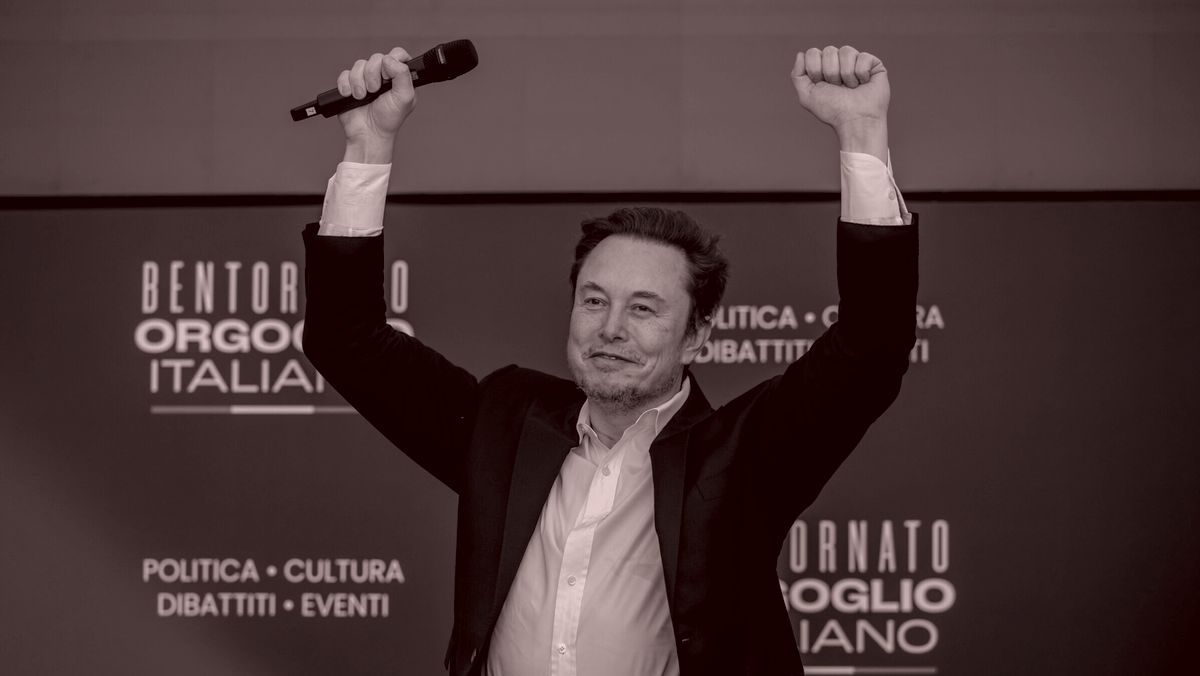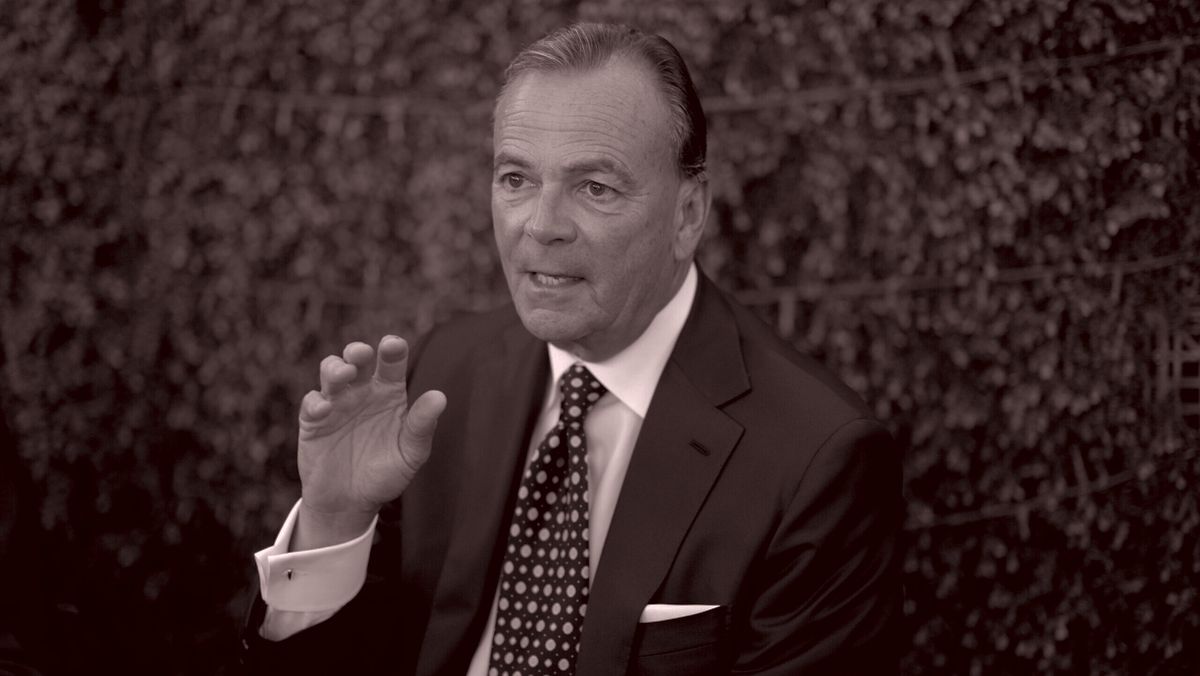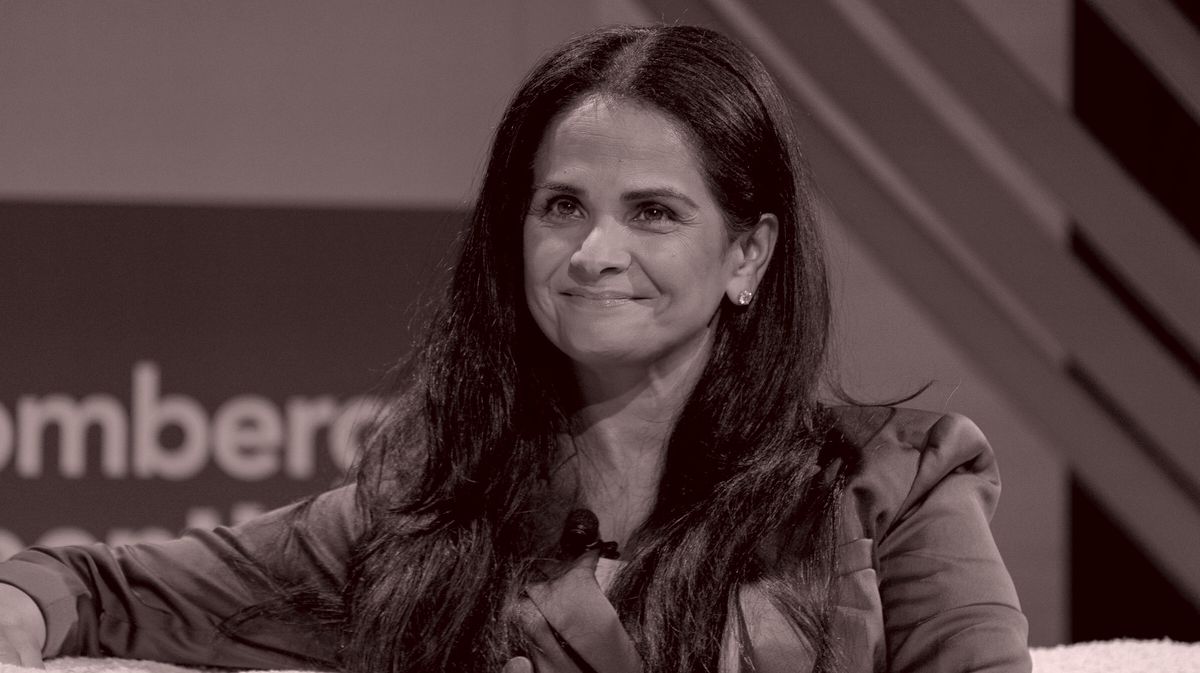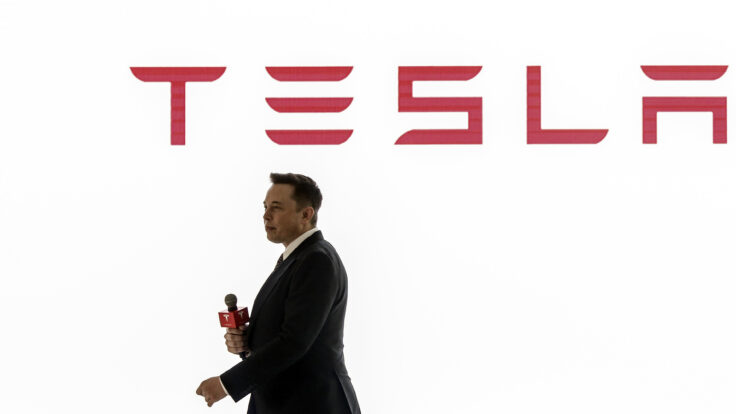Happy Sunday and welcome back to Dry Powder. I’m Bill
Cohan.
In the first 18 months or so after Elon Musk’s $44 billion acquisition of Twitter, the consensus on Wall Street was that the $31 billion of equity invested in the buyout was essentially a lost cause. The only question was how badly the seven banks that provided the remaining $13 billion of debt would get burned when they sold it off their balance sheets. But now,
with Musk in the White House, that debt is suddenly being priced close to par. In tonight’s issue, my deconstruction of an entirely improbable turnaround.
But first…
|
- Trump’s Kennedy Center takeover: Nobody should be surprised by anything Trump does these days, but I’m still dumbfounded that he would pick the Kennedy Center in Washington as a place to flex his political muscles. Last week, as you know, Trump booted all the Joe Biden–appointed board members from the center and named himself the board’s new chairman, replacing longtime chairman David Rubenstein, billionaire
co-founder of the Carlyle Group and my fellow Duke alum. The Kennedy Center’s longtime president, Deborah Rutter, was also summarily fired, and replaced for the moment by Richard Grenell, a Trump loyalist and ambassador to Germany in the president’s first term. Also among the new Trump-appointed trustees are J.D. Vance’s wife, Usha; longtime Trump aide Dan Scavino; Trump’s chief of staff,
Susie Wiles; and Allison Lutnick, wife of Trump’s nominee for commerce secretary.
I reached out to the Carlyle Group—the alternative asset management firm with nearly a half-trillion dollars of A.U.M. that Rubenstein co-founded, and whose board he remains a member of—for comment, but never heard back. Rubenstein did, however, take to X on Thursday to confirm that he was no longer the chairman of the Kennedy Center board of trustees, and also to apologize
for not being in Washington on Wednesday—the fateful day for both him and Rutter, whom he recruited to the center in 2004. “Thanks for what Deborah and all of you have done for the American people,” Rubenstein wrote. “President Kennedy would be proud of your selfless work, your long hours, your commitment to excellence, and your dedication to the performing arts.”
Rubenstein was originally going to step down as chairman this year, after 14 years in the seat, once a new chairman had been
selected. But the hunt took longer than expected, and he’d decided to stick around until September 2026. He is, to date, the single largest donor to the Kennedy Center, having given $111 million over the years. In a January 2024 interview with The Washington Post, he outlined the qualities that his successor should possess: passionate about the performing arts; willing and able to contribute financially to the Kennedy Center; based in the D.C. area; adept at getting along with
people across the political spectrum; and skilled in public speaking. I’m not sure Rubenstein was thinking Donald Trump would be his successor. But at least Trump lives in Washington during the week.
|
|
|
A MESSAGE FROM OUR SPONSOR
|
PERFORMANCE UNLEASHED
With a distinct sporting personality, the Range Rover Sport is a
peerless performer.
EXPLORE
|
|
|
And, quickly, a few news and notes on some familiar subjects from my partner
Dylan Byers…
|
|
|

|
Dylan Byers
|
|
- Of
Paramount concern: In a real sign of the times, Paramount Global executives mulling a settlement with President Trump over his lawsuit against CBS News and 60 Minutes are reportedly concerned that settling will make them legally exposed to accusations of bribery, according to The Wall Street Journal.
Go figure.
- Pure Ari gold: Ari Emanuel got quite punchy during a live taping of the Freakonomics podcast on Thursday night, attacking Sam “The Swindler” Altman, dropping some
Jeffrey Epstein insinuations about Bill Gates, and defending Elon Musk, whom he described as “a close friend.” Ari also said he confronted Jeffrey Katzenberg over the Democrats’ handling of the 2024 presidential election—hardly a rare occurrence in Hollywood these days—and chided the party for “telling lies” about Biden while “calling everyone liars.” WSJ’s Joe Flint
has some of the highlights.
- Ratings skirmishes: A source flagged that CNN’s News Central, with John Berman, has bested MSNBC’s Morning Joe in the ratings every day this week. As the source noted, this data point probably has more to do with Joe & Co.’s post-November ennui than CNN’s
strides. (But still!) Meanwhile, in an even realer sign of the times, Fox’s The Five is now outperforming CBS Evening News—which has as much to do with Fox’s post-election success as it does with CBS’s evergreen struggles.
|
|
|
The first glimmers of hope are starting to emerge for Elon and his
$44 billion deal for X, which was once derided as one of the worst acquisitions since the financial crisis. With the debt now trading at or near par (!!), here’s a deconstruction of an entirely improbable turnaround.
|
|
|
It took more than two years, but some big Wall Street
banks—along with several of their European and Japanese counterparts—are finally breathing a sigh of relief now that nearly $9 billion of the $13 billion of X debt they’ve been holding on to is flying out the door. Incredibly, the debt is being priced close to par, which is surely assuaging the banks’ regulators and credit committees. Of course, this is quite a turnaround from the early days of Elon Musk’s $44 billion acquisition of the company, when he was busy firing
75 percent of Twitter’s employees and telling Bob Iger to go fuck himself, and advertisers were fleeing the social media platform in droves.
In the end, the banks’ stubbornness has miraculously paid off, as the first-lien X debt—that $9 billion—is finding new homes in the hands of eager buyers and away from the banks’ balance sheets. It’s an outcome I could not have predicted. According to the Financial Times, a group of investors
including Diameter Capital Partners, run by Scott Goodwin (the son of my former JPMorgan partner John Goodwin), bought about $1 billion face amount of the X debt in January, at a meaningful discount of about 90 cents on the dollar to generate around a 14 percent yield. That group is already in the money on the debt, now that it has traded up to around par. Lately, other buyers have had to pay more: A big chunk of the debt sold
for about 97 cents on the dollar in recent weeks, and another $3 billion or so is about to be sold for close to par, or without any discount at all. Morgan Stanley, for instance, is boosting its X debt offering to $4.7 billion, with no discount offered, because of high demand.
How the heck was this surprise turnaround engineered? That question has been vexing me for months. In the first 18 months or so after the deal closed, the consensus on Wall Street was that the $31 billion of equity
that Elon and his friends invested in the buyout—$24 billion of which came from Elon himself—was a lost cause. The only question left was how badly the seven banks that provided the remaining $13 billion, in the form of two tranches of debt, would get burned when they sold it off their balance sheets, as they’re pretty much required to do by regulators. There was little hope for much more than 50 to 60 cents on the dollar, even as X was somehow keeping current on its annual $1.4 billion in
interest payments. But I think I’ve finally gotten to the bottom of how it happened, and why the selling banks are now dancing a jig.
|
Some of the buyers attribute at least part of the turnaround, improbably, to
Linda Yaccarino, whom Elon hired away from NBCU in May 2023 to become X’s C.E.O. Since then, she has unveiled a number of subscription-based products that seem to be working. She has also, somehow, managed to lure advertisers back to the platform. (Though she has certainly benefited from the fact that few companies want to pick a fight with Musk these days, given his ubiquity, including in the White House.) Meanwhile, X is also benefiting from Meta’s removal of many controls on
its social media platforms, too, offering advertisers a similarly brand-unsafe experience. Direct X competitors Threads and Bluesky haven’t quite cracked the code. TikTok has its own existential crisis, obviously. So there aren’t many better options.
|
|
|
A MESSAGE FROM OUR SPONSOR
|
PERFORMANCE UNLEASHED
With a distinct sporting personality, the Range Rover Sport is a
peerless performer.
EXPLORE
|
|
|
I’ve heard from someone directly involved in the debt
transactions that no less than 99 percent of the advertisers have returned (perhaps this person was being hyperbolic; there are still a lot of nutty advertisements in my feed), and that there are now more than 3 million paid “premium” subscribers on top of X’s 220 million or so daily users. December 2024 revenue, I’m told, was up 40 percent from the same period the previous year, with advertising revenue up 32 percent year over year and the balance of the increase coming from paid
premium subscriptions.
Linda, it seems, is actually doing a pretty good job—and appears to have evolved since that awful blink-twice Kara Swisher interview from back in the day. “I think she’s excellent,” one source who met with her recently told me. “I was impressed.” Didn’t see that coming
either. I’m also told that Elon has put another $200 million into X since the deal closed to fund “cash burn,” which is apparently less than expected after his initial equity investment of $24 billion went up in smoke.
|
“Circular Accounting Nonsense”
|
All at once, it seems, the puzzle pieces have come together,
benefiting the big banks and assuring buyers that the $9 billion of X first-lien paper is money-good. “Everything is moving in the right direction,” one Wall Street source told me. From a loan-to-value perspective, which is how buyers look at these opportunities, you’ve got a first-lien loan of $9 billion and a value of $20 billion, just accounting for X and its stake in xAI: a 45 percent loan-to-value ratio, giving investors all the comfort they’d ever need to buy this paper at or close to
par.
That translates to good news for Morgan Stanley, Bank of America, Barclays, Mizuho, MUFG, Société Générale, and BNP Paribas, who can now move this debt off their balance sheets and make room for the next round of leveraged loans. There’s still the $4 billion of junior X debt that will likely remain on their balance sheets for the time being. But they might as well wait and see what happens at this
point, right?
As for the $31 billion of equity, things seem to be looking up on that front, too, albeit slowly. Using the $20 billion enterprise valuation, that would mean the X equity is now worth around $7 billion (after subtracting the $13 billion of debt at par), or 77.5 percent less than the original $31 billion of equity invested. That pretty much squares with the price that one Fidelity fund with a
$19.7 million stake in X valued its position as in November: $5.8 million, a decrease of 71 percent from the original value of the investment, but up from a valuation of $5.5 million in October.
Of course, there are at least a few skeptics of this suddenly rosy scenario. On Bluesky, Kara Swisher referred to the payments from xAI to X for its data as “circular accounting nonsense.” Another source claimed that Elon “just moved money from one pocket
to the other, to make it look profitable so he could sell the debt,” and that user growth is “stagnant,” revenue is “horrible,” and Linda is “a clown.” Is this skepticism or schadenfreude? I haven’t a clue. But the debt is moving, and at prices that would’ve seemed implausible six months ago. Regardless of how Elon did it, the debt syndication clearly seems to have worked out for the banks, and for some of the first wave of investors who bought that debt.
We’re still far from a payday for Elon’s fellow equity investors, such as a16z, Larry Ellison, and the Saudi billionaire Prince Alwaleed. But between the sale of a majority of the debt for nearly par, the A.I. valuation euphoria, the increasing EBITDA, and the ongoing Elon-Trump bromance (like other media companies, X recently settled its lawsuit with Trump for booting him off the platform, pre-Elon, because of January 6),
the first glimmers of hope in more than two years are starting to emerge for this deal, once considered one of the worst made after the 2008 financial crisis. I have to admit, I didn’t see that coming.
|
|
|
An insider-friendly tip sheet from Matthew Belloni, who spent 14 years in the trenches at The Hollywood Reporter
and five before that as an entertainment lawyer. Subscribers also receive What I’m Hearing+, a companion email focused on entertainment law, the streaming industry, and more.
|
|
|
Puck senior political correspondent Tara Palmeri grapples with the aftermath of what may be the most chaotic
and consequential presidential election cycle of our lifetime. With 15 years covering politics, Tara speaks with the smartest political minds to discuss what’s happening behind the scenes in Washington, D.C., from the campaign trail to the Capitol.
|
|
|
Need help? Review our FAQ page or contact us for assistance. For brand partnerships, email ads@puck.news.
You received this email because you signed up to receive emails from Puck, or as part of your Puck account associated with . To stop receiving this newsletter and/or manage all your email preferences, click
here.
|
Puck is published by Heat Media LLC. 107 Greenwich St, New York, NY 10006
|
|
|
|





















